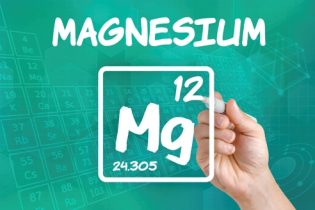Magnesium deficiency is considered to be on the rise. Our diets are changing so that we are eating less magnesium rich foods. For those of us who do eat foods that historically contain significant amounts of magnesium then farming methods/soil depletion result in lower levels of magnesium in these foods.
However, a deficiency of magnesium can be undiagnosed for many years, particularly in the younger and middle-aged age groups. But for the geriatric population then the health conditions associated with low levels of magnesium may be more visible. One such condition that may be associated with low levels of magnesium is frailty which is clinically recognised by weakness, low levels of physical activity, unintended weight loss and unexplained fatigue.
A recent research study (1) looked to determine whether there was any connection between dietary magnesium intake and frailty, in particularly whether low levels of dietary magnesium is a risk factor for frailty.
The study, conducted by the Ambulatory of Clinical Nutrition Research Hospital, looked at older adults over an eight year period. Over 4000 people were included in the study and the ages ranged from 45 to 79 years old. Magnesium intake was assessed from a questionnaire and the participants were designated as being either equal to or greater than the Recommended Daily Allowance or consuming a lower level of magnesium. (RDA for men is around 410/day and for women it is around 315 mg/day).
The study ascertained that during the eight-year period, 120 men and 242 women acquired a frail condition. Those in the higher baseline level of magnesium group, interestingly intake was found to be allied with a lower risk of frailty in men, but not in women.
The risk of frailty in men reaching the Recommended Daily Allowance was around half. In addition the rate of frailty rates decreased by approximately 20% for each 100 mg increase in dietary magnesium. Again there were no findings of this relationship among the female participants.
The authors conclude that their data indicates that higher dietary magnesium intake is associated with a lower risk of frailty in males, but not in women, suggesting that there may be differences between the genders in this particular association. They add that further studies are required to determine whether magnesium supplementation may be lead to lower rates of frailty in the older population group.
(1) Dietary Magnesium and Incident Frailty in Older People at Risk for Knee Osteoarthritis: An Eight-Year Longitudinal Study.
Veronese N1,2,3, et al.
Nutrients. 2017 Nov 16;9(11). pii: E1253.

